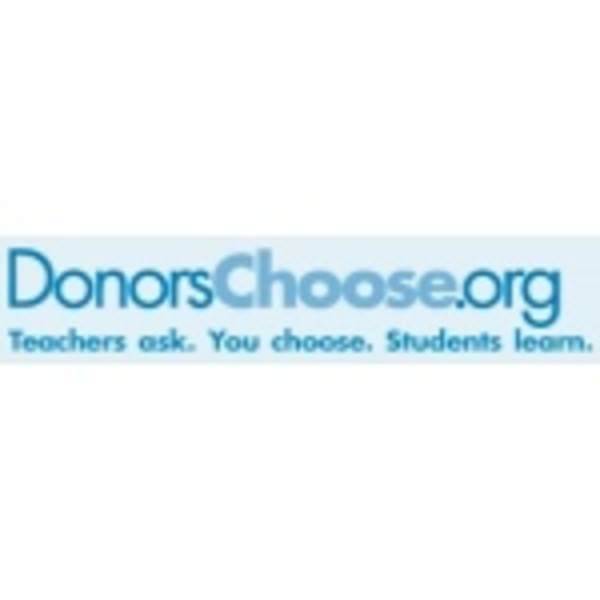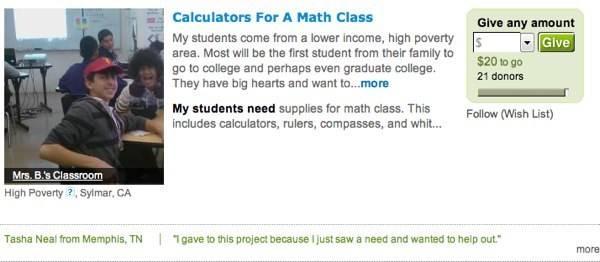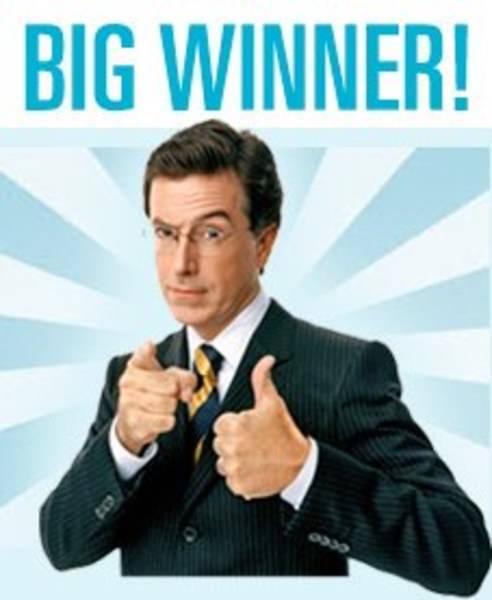A recent Brookings Institute survey found that Americans want more media coverage of education. People said they want more information about their local schools, about violence on campus, about teacher performance and student achievement. But even if there was more reporting and better access to official data about crime and test scores and demographics and budgets, that would still be a pretty incomplete picture of our education system.

So imagine if you could have access to data about what over 165,000 teachers in over 43,000 public schools said some of their most important classroom needs were. Imagine if you had the data about over 300,000 classroom projects that have inspired some $80,000,000 in charitable giving.
That would give you a richer picture of what was happening in the American school system. It could highlight what teachers say they need for their classrooms. It could highlight what donors wanted to support.
So here you go then, because that’s just what DonorsChoose.org is doing. The charitable giving website is releasing its data as part of a contest, aptly titled Hacking Education.
A Kickstarter for Education
For those unfamiliar with the site: think Kickstarter for education. Teachers pitch their classroom projects, and if they get enough donor support, they get the funding. By “classroom projects,” I don’t mean “we’re taking a field trip to Barcelona.” I mean “we need books for a special needs class.” “We need historical maps.” “We need a computer.”

Hacking Education Data
So DonorsChoose.org is looking for developers to build either apps with its API or perform analysis on the datasets. The former is important as, despite the impact the organization has had, the team remains small. “There’s only so much we can do,” says Oliver Hurst-Hiller, DonorChoose.org’s CTO, who says the organization would like to improve its UI and have a mobile app.
But the API and data are open to any number of projects as part of this hackathon. And the data is fascinating. It will include grade level and geodata, type of school (public or charter), and poverty level, for example. It will include information about the resources teachers are requesting – the amounts and prices for musical instruments, cameras, iPods, calculators, and the like. It will also include – all anonymized, I should add – the text from teachers’ essays.
But it isn’t just information about what teachers need help funding. It’s what donors are interested in supporting. Again, the data is anonymized, but there is information about donation sizes, topics, and preferences. And the data also includes search logs, so you can see for example, that most donors who go to the site search for projects related to Autism.
This is interesting and important stuff.
You Win, We All Win
Hurst-Hiller admits that it’s somewhat self-serving for DonorsChoose.org to run a hackathon to have developers work on its platform and data. But in the end, he says, the efforts will help more classrooms and could encourage others to build similar marketplaces in support of other social endeavors.

Oh and if altruism and Audrey’s appreciation aren’t enough here: the prizes! These include a trophy, handed to you by Stephen Colbert (along with tickets for you and a couple of friends to watch a taping of his show), an Xbox 360, your data analytics turned into an infographic by Column 5, and much more. You can read the full details of the content here.





















